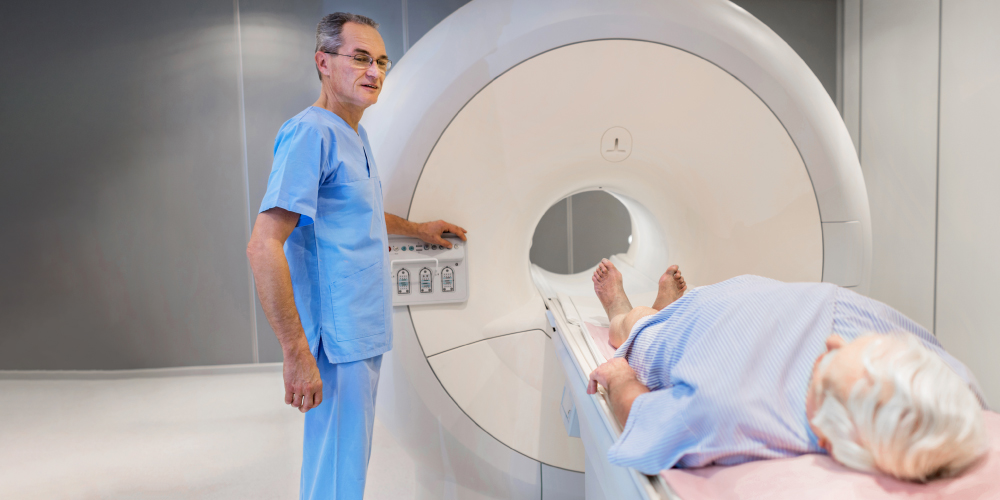Beyond Biopsy: A Growing Role for MRI in Prostate Cancer Care

Beyond Biopsy: A Growing Role for MRI in Prostate Cancer Care
Much attention paid to multiparametric prostate MRI has focused on its ability to improve prostate cancer detection and diagnosis. However, prostate MRI has the potential to improve other aspects of prostate cancer care. Beyond guiding biopsy needles, prostate MRI can also aid prostate cancer staging, inform treatment planning and to monitor patients following treatment.
Prostate MRI in Local Staging of Prostate Cancer
Pre-treatment staging is essential to determining an appropriate disease management strategy in men with prostate cancer. Staging prostate cancer currently relies on digital rectal exam, prostate-specific antigen levels and Gleason score. Collectively, these indicators can predict the risk of extra-capsular extension (ECE), but they do not provide information regarding localization or extent.
For potential surgical candidates, differentiating between cancers confined to the prostate and those that have spread beyond the prostate is especially crucial. Compared with alternative imaging options, prostate MRI offers the most accurate assessment of local prostate cancer and regional metastatic spread.
Prostate MRI can effectively evaluate for ECE, including involvement of the neurovascular bundle and invasion of adjacent structures like the seminal vesicles, bladder and rectum. Knowledge of lymph node metastases is also essential to appropriate treatment planning and prostate MRI can also be used to help detect lymph node metastases.
Prostate MRI in Treatment Planning and Surveillance
Following a prostate cancer diagnosis, prostate MRI can confirm whether disease is caused by an early-stage tumor and help to stratify patients into active surveillance or radical treatment. If intermediate- or high-risk cancer is confirmed, prostate MRI can guide both surgical and non-surgical treatments.
Prostate MRI is particularly useful in surgical patients due to its ability to investigate for ECE and seminal vesicle involvement. It has significantly improved decisions to preserve or remove the neurovascular bundle, according to one review of relevant clinical literature published December 2013 in American Journal of Roentgenology. Additionally, in one study considered, the use of MRI influenced the decision to use nerve-sparing robotic-assisted laparoscopic prostatectomy.
Authors of this review concluded that prostate MRI “offers the single most accurate imaging assessment of local prostate cancer and regional metastatic spread and aids in many aspects of prostate cancer management, including initial detection, biopsy guidance, treatment planning, and follow-up and has further potential emerging roles to replace TRUS biopsy for patients undergoing active surveillance and to initially evaluate patients with suspected prostate cancer before TRUS biopsy.”
Prostate cancer treatments are not one-size-fits-all. For men dealing with a prostate cancer diagnosis, prostate MRI can reveal information about their disease to help them more confidently make treatment decisions. We recommend that men who have been diagnosed by TRUS biopsy also receive prostate MRI to receive more information about their cancer and their options.
For more information, please contact us.